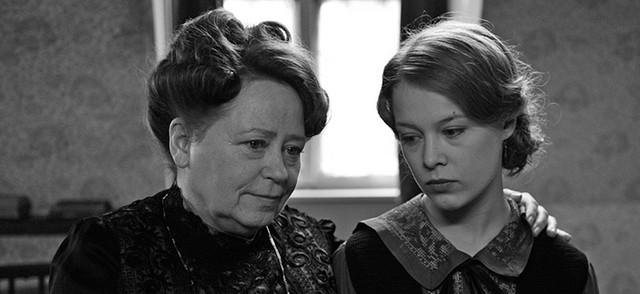Franz frantz aka: stand-in for love (Minato) / Double Sided Franz (Taiwan)
In 1919, just after the end of the First World War, the Young French Atian visited a cemetery in Gatlinburg, Germany, to sacrifice the German youth Franz who died on the battlefield, Franz's parents and fiancée Anna were curious about Atian's origins, after learning that Atian was a good friend of Franz's travels to France, they put aside their hatred for the French, accepted Atian wholeheartedly and regarded him as their own, however, Atian faced with the hospitality of Franz's parents and Anna, there was always a lingering melancholy look on his face. What kind of secrets does he harbor?
French director françois ozon's new work "Franz" is a sad and gentle work, the film is about the ruthlessness of war, the battlefield is either you die or I live, the dead have regrets, the living people have to bear the pain to live; the film is about the torn hearts, the French hate the Germans, the Germans hate the French, they accuse each other of being the murderers of their relatives, until the Franz father knew Atian, the mood changed. He understands that Franz's death may not only blame France, but also blame himself for forcing his son to go to war with "patriotism", the first half of "Franz" lets the audience see Atian being ostracized by the local residents in Gatlinburg, and the second half of the film sees the same hostility playing out on her through Anna's trip to France, and the greatest harm of war is not only to take away countless young lives, but also to plant the root of hatred in people's hearts, which is difficult to remove.

"Originally.....Franz anti-war?!"
The first flashpoint of "Franz" is that Atian confesses to Anna that he actually does not know Franz, but after accidentally killing Franz in the trenches, he finds a letter from Franz to his fiancée Anna from his pocket, thus learning where Franz's hometown is, and Atian says to Anna: "I would like to admit to you earlier that I killed Franz, but the more I know the people of Franz, the more I like him, the more I can't say it." Only after the war did Atian have the opportunity to truly know the people of Franz, which was the helplessness of the war, but even more helplessly, even after the war, people could continue to be kidnapped by hatred and could never (and refuse) to know the enemy side.
"You like this painting too?"
"It makes me want to live."
For me, the brilliance of "Franz" is not the revelation of the fact that Atian killed Franz, but Anna's love for Atian, falling in love with the person who killed her fiancé, how complicated and contradictory should it be? I appreciate the use of sound and color in "Franz", when Anna reads the Franz suicide note, it is first Anna's voice, and then it becomes the voice of Franz (imagining the content of the fiancé's personal reading of the letter to himself) and then Franz's voice is replaced by Atian, indicating the transfer of Anna's emotions, Atian and Franz are similar in age, interests and preferences are similar, the dead Franz seems to be reborn in Atian; however, Atian is not Franz after all, the fact that he killed Franz cannot be erased, in the movie, Atian wants to confess the truth to the Franz parents, Anna lies that she has told the Franz parents the facts and asked Atian not to disturb them, Atian sadly left Germany before asking Anna if she can write to them (Franz's parents), Anna asked Atian to send the letter to her, and she handed it over on her behalf, Anna did not think that Lands's parents were sad and made up one lie after another, just as Atian fabricated one lie after another in order to know more about the "people" of Franz; watching the "Franz" process, I found that as long as Anna or Atian lied, the movie screen would change from black and white to color, and this design hit me, as if to say that reality itself is not beautiful (black and white), there is hatred, discrimination, resentment, jealousy and exclusion, and I want to survive in this cruel and ruthless world,...... It needs the support of lies (color), because it lacks the embellishment of lies, and it is unbearable to live (the good world only exists in the imagination, which is the deepest indictment of the cruel reality); Anna chooses to lie to Atian and Franz's parents and herself, perhaps to soothe Atian's sense of guilt, to hope that Franz's parents will not be deeply trapped in the pain of losing their son, to want to have the motivation to live through woven lies (dreams), or that the person she most wants to comfort is still the dead Franz. It's like saying to a deceased lover, "Although it is based on lies, we (all who care about Franz) will live well."
"Franz" ends in Atian and his marriage to his young plum bamboo horse, Anna chooses to stay in Paris, France, to start a new life, she later wrote a letter to Franz's parents, saying that she is all right, and the development of her relationship with Atian is also smooth, Anna self-righteously hides the truth from Atian and Franz's parents, is this a reasonable or selfish choice? If I were Franz, would I want my parents to know the truth and be hurt by the truth again? Probably not; but what if I were Franz's parents? Will I want to live in a lie? Honestly, I can't give a clear and absolute answer